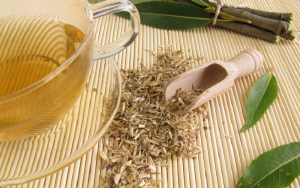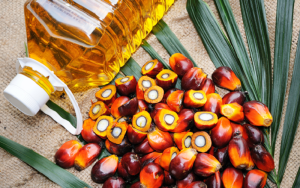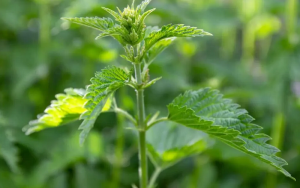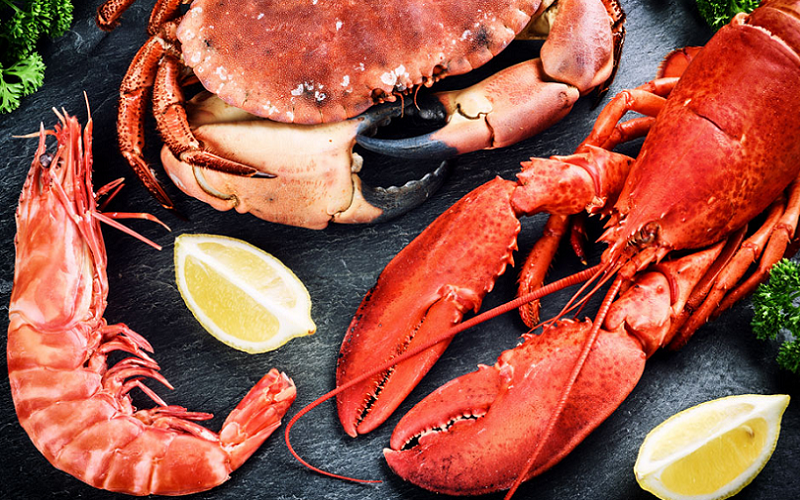
Chitosan, a natural polysaccharide derived primarily from the hard outer skeleton of shellfish, has shown potential in aiding weight loss and maintaining healthy cholesterol levels. Known for its unique properties and wide-ranging applications, Chitosan has been capturing the attention of scientists, researchers, and health enthusiasts alike.
Contents
Understanding Chitosan
Before we dive into the specifics of how Chitosan can aid in weight management and cholesterol control, it’s important to understand what Chitosan is, where it comes from, and its general uses.
Definition of Chitosan
Chitosan is a naturally occurring polysaccharide, a type of carbohydrate that’s chemically similar to cellulose. Derived mainly from chitin, the primary component in the hard exoskeleton of crustaceans like shrimp, crab, and lobster, Chitosan has a unique structure that gives it distinct properties. It’s biodegradable, biocompatible, and nontoxic, making it a substance of interest in a variety of fields.
How Chitosan is Produced
Chitosan is primarily obtained from chitin, a component found in the shells of crustaceans. The production process involves the deacetylation of chitin, which transforms it into Chitosan. This is generally achieved through a chemical process that involves treating the chitin with an alkaline substance, such as sodium hydroxide. The degree of deacetylation influences the properties of the resultant Chitosan, which can be further modified to suit specific uses [1].
General Uses of Chitosan
The versatility of Chitosan has made it a popular choice in many industries. Its applications extend from agriculture, where it’s used to enhance crop yields and fight against plant pathogens, to medicine, where it’s explored for wound healing, drug delivery, and tissue engineering, thanks to its biocompatibility and non-toxicity.
In the field of water treatment, Chitosan has been utilized as a bio-adsorbent to remove pollutants due to its ability to bind with impurities. In the food and beverage industry, it’s often used as a preservative or a fining agent, which helps remove unwanted substances.
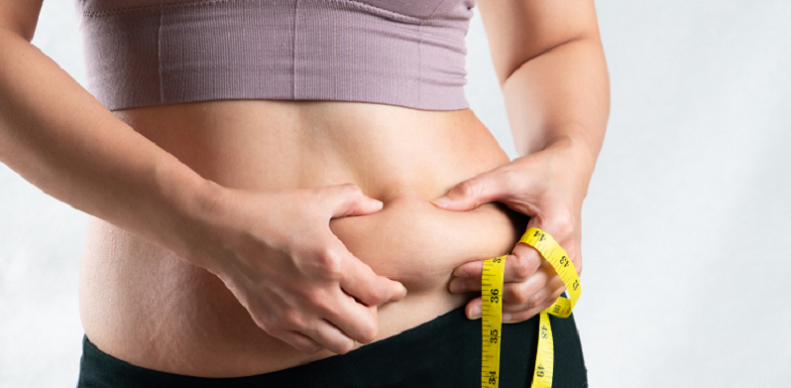
Chitosan and Weight Management
One of the most talked-about applications of Chitosan in the health and wellness industry is its potential role in weight management. In this section, we’ll break down the science behind how Chitosan might assist in weight control, review the supporting research, and discuss any potential limitations and side effects.
Overview of Weight Management
Weight management is a long-term approach to maintaining a healthy weight. It’s about balancing the calories consumed through food and drink with the calories burned through physical activity. Maintaining a healthy weight is crucial for overall health and can help prevent and control many diseases and conditions. If you are overweight or obese, you are at higher risk of developing serious health problems, including heart disease, high blood pressure, and type 2 diabetes.
The Mechanism of Chitosan in Weight Management
Binding to Dietary Fats
Chitosan is a type of fiber, and like other forms of dietary fiber, it’s not easily digested by the human body. But what sets Chitosan apart is its positive ionic charge, which allows it to bind to negatively charged substances like lipids (fats). This is where the potential for weight management comes in [2].
When taken as a supplement, Chitosan travels through the digestive tract and has the ability to bind to dietary fats, forming a substance too large to be absorbed through the lining of the small intestine. The resultant Chitosan-fat complex is then naturally excreted from the body.
Reducing Calorie Absorption
Because the Chitosan-fat complex is not absorbed, the calories contained in those fats are not taken in by the body, thus reducing total calorie intake. This unique mechanism has been the basis for promoting Chitosan as a weight management aid.
Studies Supporting Chitosan’s Role in Weight Management
Several studies have explored the potential of Chitosan as a weight management supplement. For instance, a meta-analysis published in the journal Obesity Reviews in 2008 found that Chitosan had a small but statistically significant effect on weight loss when compared to placebo in overweight and obese individuals [3].
However, it’s important to note that the effects observed in these studies tend to be modest, and not all studies have found a significant effect of Chitosan on weight loss.
Potential Limitations and Side Effects
While Chitosan holds promise, there are potential limitations and side effects to consider. Firstly, Chitosan’s ability to bind to dietary fats means it may interfere with the absorption of essential fat-soluble vitamins (A, D, E, and K).
Moreover, like other dietary fibers, Chitosan can cause gastrointestinal side effects, including bloating, constipation, or stomach upset, especially when consumed in large amounts. Individuals with shellfish allergies should also avoid Chitosan due to its source.
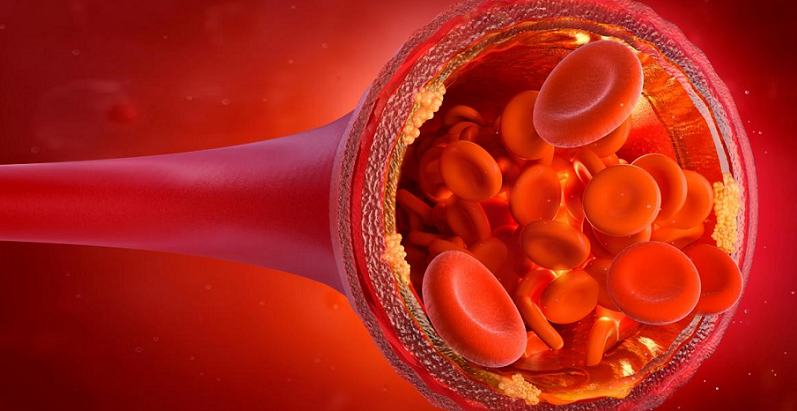
Chitosan and Cholesterol Control
In addition to potential weight management benefits, Chitosan has also been explored for its potential effects on cholesterol levels. Let’s delve into understanding cholesterol and how Chitosan may play a role in maintaining healthy cholesterol levels.
Understanding Cholesterol: Good Vs. Bad
Cholesterol, a type of fat found in your blood, is essential for building healthy cells. However, high levels of cholesterol can lead to the development of fatty deposits in your blood vessels, making it difficult for blood to flow through your arteries. This can lead to serious health problems, including heart disease.
Cholesterol is often classified into two types: “good” cholesterol, or high-density lipoprotein (HDL), and “bad” cholesterol, or low-density lipoprotein (LDL). HDL is beneficial because it carries cholesterol from other parts of your body back to your liver, which removes it from your body. On the other hand, LDL transports cholesterol particles throughout your body, and high levels can build up in the walls of your arteries, making them hard and narrow.
How Chitosan Helps Control Cholesterol Levels
Preventing Absorption of Cholesterol
Chitosan’s ability to bind to lipids isn’t just limited to dietary fats. It’s also thought to interact with cholesterol in the digestive tract. By binding to cholesterol, Chitosan may help prevent its absorption into the bloodstream, thus potentially reducing overall cholesterol levels [4].
Promoting Excretion of Cholesterol
Furthermore, the Chitosan-cholesterol complex that forms is too large to pass through the intestinal wall and is eventually excreted from the body. This may help decrease the amount of cholesterol available to circulate in the bloodstream.
Studies Supporting Chitosan’s Role in Cholesterol Control
Several studies have investigated Chitosan’s effects on cholesterol levels. For instance, a study published in the European Journal of Clinical Nutrition found that Chitosan supplementation significantly lowered LDL (“bad”) cholesterol levels while having no significant effect on HDL (“good”) cholesterol.
Another review published in the Journal of Dietary Supplements analyzed multiple studies and concluded that Chitosan could reduce total cholesterol and LDL cholesterol levels [5].
However, as with weight management, results vary between studies, and the overall effects, while promising, tend to be modest.
Potential Limitations and Side Effects
As discussed in the weight management section, Chitosan’s ability to bind to fats might also interfere with the absorption of essential fat-soluble vitamins. Moreover, some people may experience gastrointestinal side effects, and those with shellfish allergies should avoid Chitosan.
Remember, while Chitosan may contribute to cholesterol control, it’s not a substitute for a healthy diet and lifestyle. Regular exercise, a balanced diet rich in fruits, vegetables, whole grains, and lean proteins, and avoiding tobacco are crucial for maintaining healthy cholesterol levels.

Practical Tips for Using Chitosan
If you’re considering adding Chitosan to your diet for its potential weight management or cholesterol control benefits, it’s important to understand how to use it effectively and safely. Here are some practical tips to guide you.
Recommended Dosages
The optimal dosage of Chitosan can vary depending on factors like the individual’s weight, health status, and the specific goals for use. In studies investigating weight management and cholesterol control, daily doses ranging from 1 to 6 grams have been used [6].
However, high doses are more likely to cause gastrointestinal side effects, and might interfere more with the absorption of fat-soluble vitamins. As such, it’s generally recommended to start with a lower dose and gradually increase if well-tolerated and needed.
Possible Interactions with Other Medications
Chitosan has the potential to interact with certain medications. Its fat-binding properties mean that it could interfere with the absorption of fat-soluble medications. For example, it may reduce the effectiveness of certain anticoagulants and cholesterol-lowering medications.
Additionally, Chitosan might also decrease the effectiveness of certain vitamins, such as vitamin A, D, E, and K, which are fat-soluble. If you’re taking any medications or other supplements, it’s best to discuss the potential for interactions with a healthcare provider before starting Chitosan.
When to Take Chitosan for Best Results
For weight management purposes, it’s generally recommended to take Chitosan with meals, as this is when dietary fat intake is highest and Chitosan can exert its fat-binding effects. Taking it between meals may not provide the same benefits since there might not be enough dietary fat present for Chitosan to bind to.
For cholesterol control, the timing may be less critical since the goal is to reduce overall cholesterol absorption, but taking it with meals could still be beneficial due to the higher fat content of meals.
Additional Health Benefits of Chitosan
While weight management and cholesterol control are often the focus when discussing Chitosan’s health benefits, research has suggested that it might offer several other potential benefits as well. Let’s explore a few of these additional health benefits.
Improved Gut Health
Chitosan, due to its fiber-like properties, can aid in digestion and promote a healthy gut. Dietary fibers are known to support gut health by encouraging the growth of beneficial gut bacteria. These bacteria ferment the fiber into short-chain fatty acids, which have various beneficial effects on gut health.
Moreover, Chitosan’s ability to bind to dietary fats can help manage conditions like gastroesophageal reflux disease (GERD) by potentially reducing the fat content in the stomach that can contribute to reflux.
Wound Healing Properties
Chitosan has been widely used in the field of biomedicine due to its biocompatibility, biodegradability, and non-toxicity. Its hemostatic (blood-clotting) properties have made it particularly useful in wound healing. Chitosan can help speed up the healing process by reducing bleeding and providing a protective layer over wounds.
Potential Role in Bone Health
Emerging research suggests that Chitosan might also play a role in bone health. Laboratory studies have shown that Chitosan can support the growth of osteoblasts, the cells responsible for bone formation. This has led to interest in Chitosan as a potential treatment for conditions like osteoporosis, although more research is needed in this area.
References
[1] Chitosan
[2] Effectiveness of Chitosan as a Dietary Supplement in Lowering Cholesterol
[3] The effects of chitosan supplementation on anthropometric indicators of obesity, lipid and glycemic profiles, and appetite-regulated hormones
[4] Chitosan for Weight Loss and Cholesterol Management
[5] Chitosan supplementation and fat absorption in men and women
[6] Effects of chitosan hydrolyzates on lipid absorption and on serum and liver lipid concentration

